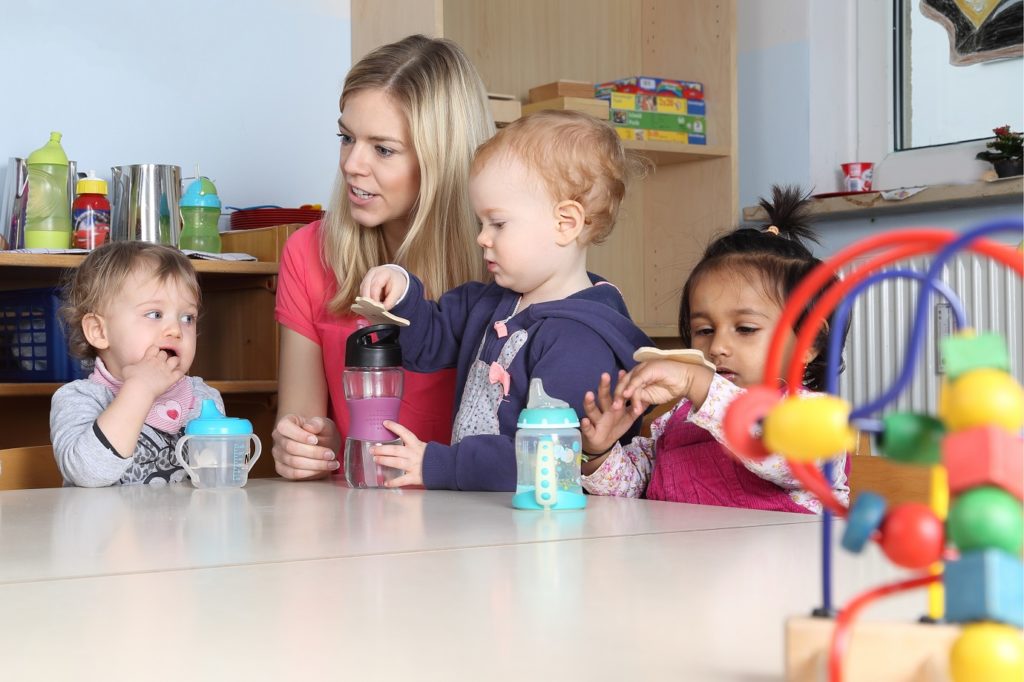We have all heard the adage to ‘do what you love and you’ll never work a day in your life’. It’s a nice sentiment, but the reality is that people should be appropriately compensated for their work, regardless of how much they enjoy it. And far too many people are unable to do what they love because of the low pay in their preferred industry.
Take, for example, the early childhood education and care sector. People who, day after day, spend their lives caring for and educating our children. Qualified staff subject to strict regulatory requirements, dealing with diverse groups of children with varied needs. Educators who constantly juggle priorities to provide for each child’s mental, physical and emotional development and wellbeing.
It takes a love of the sector to do such an amazing but demanding job. A passion for providing high-quality early education, which has a proven and demonstrable impact on future outcomes for children in their services.
Sadly, that love is often the only reason early childhood educators have to work in the sector, and it isn’t enough for the many staff who leave the sector every year because of the low pay on offer for their hard work. Even before the COVID-19 pandemic, a study showed that one in five early childhood educators and teachers planned to leave the job within the year. Staff turnover rates can be as high as 30 per cent a year.
This has been exacerbated by COVID-19, when so many skilled educators were faced with job insecurity and had to seriously decide whether it was worth staying in a sector that the government and public seem to give little regard or appreciation for.
To show how little these staff are respected, the award rate for a full-time adult early childhood educator (who must have at least a Certificate III qualification) is as low as $20.29 an hour as of November 2020. Compare this to the national minimum wage of $19.84 and the average Australian full-time weekly earnings of $1767.20 in November 2020 (which, for a 38-hour week, equates to $46.51 an hour).
A person with mandatory qualifications, working to a National Quality Framework under intense legal scrutiny, caring for a developing human being, gets as little as $0.45 an hour above minimum wage, or less than $20 extra a week (based on a 38-hour week).
This, for a sector that has not only been proven to provide significant positive effects for children’s skills development and future competencies, but is also a cornerstone of our economy, allowing parents to work. One recent study suggested that providing a single year of part-time early childhood education in the year before school would provide billions of dollars in benefits to the economy.
At YWCA Canberra, we are proud to provide above-award wages for staff at all levels within our early childhood education and care services. We are also proud to run programs like Educate, Inspire, Excel (EIE), through which we are training the next generation of early childhood educators.
We started this program in the height of the COVID-19 crisis, which so clearly demonstrated that the early learning sector is vital to our community and our economy. We wanted to ensure a pipeline of skilled educators in our region, while providing participants with the opportunity to study and work in a supportive, inclusive environment.
Through EIE, we provide work readiness and on-the-job training, link trainees with workplaces, and provide any social, health, housing or wellbeing support they might need through our community services. This helps students complete their qualifications and supports employers to retain trainees during their studies.
We are lucky to engage with our own early childhood staff and trainees who are passionate about their work. As one of our EIE trainees told us recently, “This job is challenging and enjoyable at the same time. You support young children to be independent and, at the same time, you are part of their development process. I am humbled to be involved in moulding the great future generation of Australia.”
But until the early childhood education and care is publicly recognised and remunerated appropriately for the professional sector that it is, there is almost no chance of being able to recruit and retain staff at the levels they are required.
Love of a job can only get you so far.


